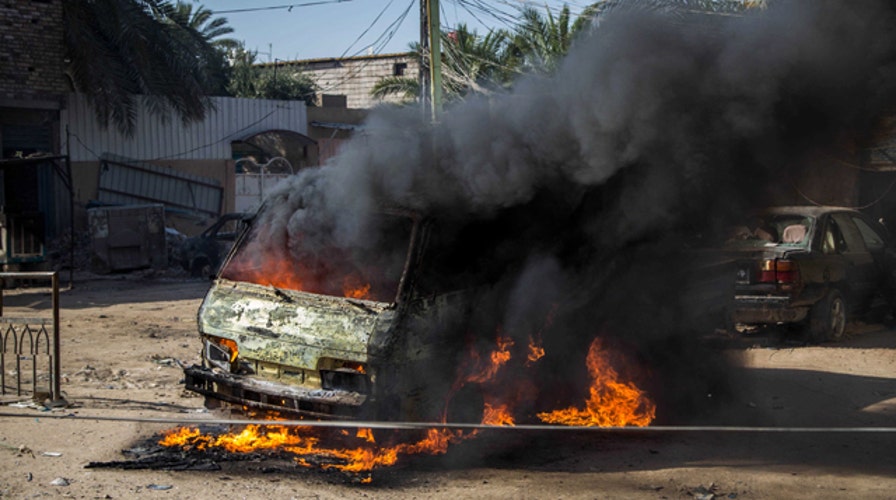Spread of violence poses new danger to Baghdad
Shiite militia fighting security forces for control
It is a hard and fast rule that if you want to get somewhere you have got to know where you have been and where you are now. That is what has been missing in the current Iraq debate. It is impossible to figure out our best policy options without understanding the successes and failures of the last decade. Analyzing what has led to the current situation will help us determine which options are in the national interest and what we need to do to get there.
Where We Have Been
Rather than demanding in 2003 that Iraqis form a western-style democracy, we should have encouraged the creation of a federal government, which would have made the regional populations ethnically, religiously and tribally more comfortable, much like the governance in Kurdistan today.
We also made the famous mistake in 2003 of disbanding the Iraqi Army, which ensured we would never have enough security forces to stabilize the country. In 2004 and 2005 we turned our backs on the Kurds, who had been our allies in the north during the war. We did not deliver on the promises we made to them, and this lack of trust persists.
In 2008 we similarly turned our backs on the Sunnis. And in 2010 we strongly backed Maliki with full knowledge he would disenfranchise Kurds and persecute Sunnis. In 2011, we failed to negotiate a Status of Forces Agreement and pulled our forces out of Iraq, ensuring we would neither consolidate previous gains nor continue to train and improve the Iraqi Army.
In 2013 we drew a line in the sand in Syria, and then backed away, sending a message to our enemies that we were all "bark with no bite." In 2014 we again gave our full support to Maliki knowing he was a puppet of Iran and that his government was Shia-Centric, meaning he would continue to persecute both Sunni and Kurdish populations. In addition to these actions in the past two years, we have failed to acknowledge the black flags of the terrorists beginning to fly over parts of Mosul and Anbar.
Where We Are Now
We are now witnessing a complicated break-up of Iraq that will lead to a religious and ethnic alignment.
The Iraq we created has become an ally and political instrument of Iran – not of the United States – and that is why the ISIS threat is a much greater problem for Iran than it is for us. We must remember that Iran has only two Arab friends: Assad's Syria and Maliki's Iraq – and they will do whatever it takes to retain both, which is why they have elements of their Revolutionary Guards Force in Iraq. If Iraq is put back together it will be Iran’s Iraq, not America’s.
The ISIS forces probably cannot generate enough combat power to overtake Baghdad. They will consolidate their gains across Iraq and will impose severe Islamic law in those areas, much like what we see on the Nineveh Plain today, where women are not allowed to work and access to electricity, fuel and water are limited. Sunni tribal chiefs will most likely will tire of the severity of ISIS rule and drive them out, much like they did with Al Qaeda in 2007 and 2008.
The National Interest
The starting point for what we do next should be what is in America’s national interest. At this time, that is to provide only enough forces to ensure the protection and, if required, the safe evacuation of our embassy personnel.
Operationally, the smartest move we could make is to arm the Kurds with the same type of weapons the ISIS forces captured from the Iraqi Army (we never modernized them as we promised; consequently, most of their weapons are obsolete). This would allow them to prevent the ISIS spread into Northern Iraq and give us an option, if necessary, for the Kurds to attack from the North, which would require ISIS to fight on two fronts — a fight ISIS cannot win.
The protection and survival of the Kurds is critically important. They are extremely pro-American, democratic, strategically located and oil-rich. We should consider making Iraqi Kurdistan a U.S. Protectorate, or better yet, do it jointly with Turkey. This would disarm the arguments over creating a Kurdish nation. Finally, we must do some forward planning and provide the resources and support necessary to prevent this from happening in Jordan, which is more than likely the next target of ISIS.

